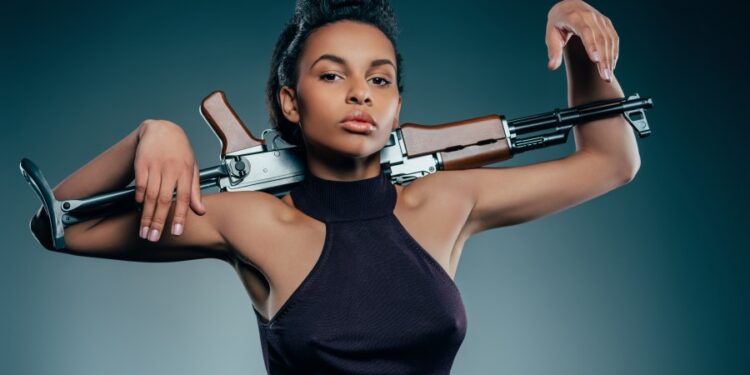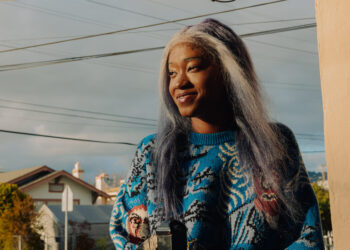
In the wake of President Trump’s election in November 2024, one of my healthcare providers, who lives with her female partner, purchased a 9mm pistol for home protection. She is not alone.
Several reporters have reached out to me to discuss the post-election surge in gun ownership in the LGBTQ community. Some political leftists in my area have formed a mutual-aid group that includes sharing gun-buying information, tips on concealed carry courses to take (and avoid), and trips to the gun range to practice shooting. My contacts at the Liberal Gun Club and African American gun clubs tell me they are seeing interest in their firearms training classes grow dramatically.
Although newsworthy, as a sociologist who has spent the past 13 years studying American gun culture, I know none of this is new.
Other scholars have documented the history of gun owner diversity in America. Law professor Nick Johnston’s “Negroes and the Gun” explores the deep roots of what he calls “the black tradition of arms” in American history. In “Real Knockouts,” women’s studies scholar Martha McCaughey traces armed “physical feminism” back to the 1970s. Anthropologist Joe Anderson examines a firearms training group run by transgender women in San Diego that echoes Jonathan Rauch’s call for armed resistance by gay people a quarter-century ago in his Salon essay “Pink Pistols.”
This longstanding diversity of gun owners has accelerated not just in response to President Trump’s election but as part of a broader shift in the center of gravity of U.S. gun culture, from its traditional focus on hunting, recreational shooting and collecting to its contemporary emphasis on self-defense. It’s an evolution from what I call Gun Culture 1.0 to Gun Culture 2.0, and its significance cannot be underestimated.
Gun Culture 2.0 is more diverse and inclusive than America’s historic gun culture because, unlike hunting, for example, security is a universal human concern. People will do what they can in response to feelings of uncertainty, insecurity or threat. Some will get a dog or buy a home security system; others will join Nextdoor or move to a gated community. And many perfectly normal people will respond by buying firearms.
This is precisely what happened in the 10 weeks leading up to Trump’s inauguration.
Although we do not yet have generalizable data, the buying conditions resemble those of 2020, when record gun sales were sparked by the COVID-19 outbreak, then fueled by protests for racial justice over the murder of George Floyd and sustained by a contentious presidential election campaign.
We know from this earlier gun buying spree that many who got swept up were new and diverse gun owners primarily concerned with self-defense. According to the 2021 National Firearms Survey fielded by researchers from Harvard and Northeastern Universities, 1.5 percent of all American adults (3.8 million people) became new gun owners in 2020. Compared to existing gun owners, they tended to be younger, more female, more Black and Hispanic, more urban, more likely to have children and less likely to have ever been married. They were also more likely to own only handguns, suggesting their defensive orientation.
Despite this historical and contemporary diversity, gun ownership in America is still often associated with a specific image: conservative, rural, white, heterosexual and cis male (think “Duck Dynasty”).
I understand why. Firearms ownership is statistically correlated with being white, male, politically conservative, voting Republican and supporting Donald Trump. At the U.S. Capitol on Jan. 6 four years ago, Oath Keepers and Three Percent militias led efforts to breach the building. A Confederate battle flag with an AR-15 and “Come and Take It” superimposed on it flew alongside all manner of Trump flags. Aggrieved white men, firmly rooted in a racially unequal past, represented one aspect of gun culture as they raised the flag of their totemic emblem and rallying cry.
But that stereotype doesn’t tell the whole story. A minority of gun owners are white men and a majority are politically moderate or liberal. Gun owners overall are not more willing to engage in political violence than nonowners. A minority of all gun owners view the events of January 6th unfavorably, with Black gun owners viewing them most negatively. And so on.
Guns are divisive enough in American society without the caricatures that frequently circulate. To build a better gun debate, we need to ground our arguments in the diverse reality of contemporary gun culture outlined here.
David Yamane is a professor of sociology at Wake Forest University and author, most recently, of “Gun Curious: A Liberal Professor’s Surprising Journey Inside America’s Gun Culture” (2024).







